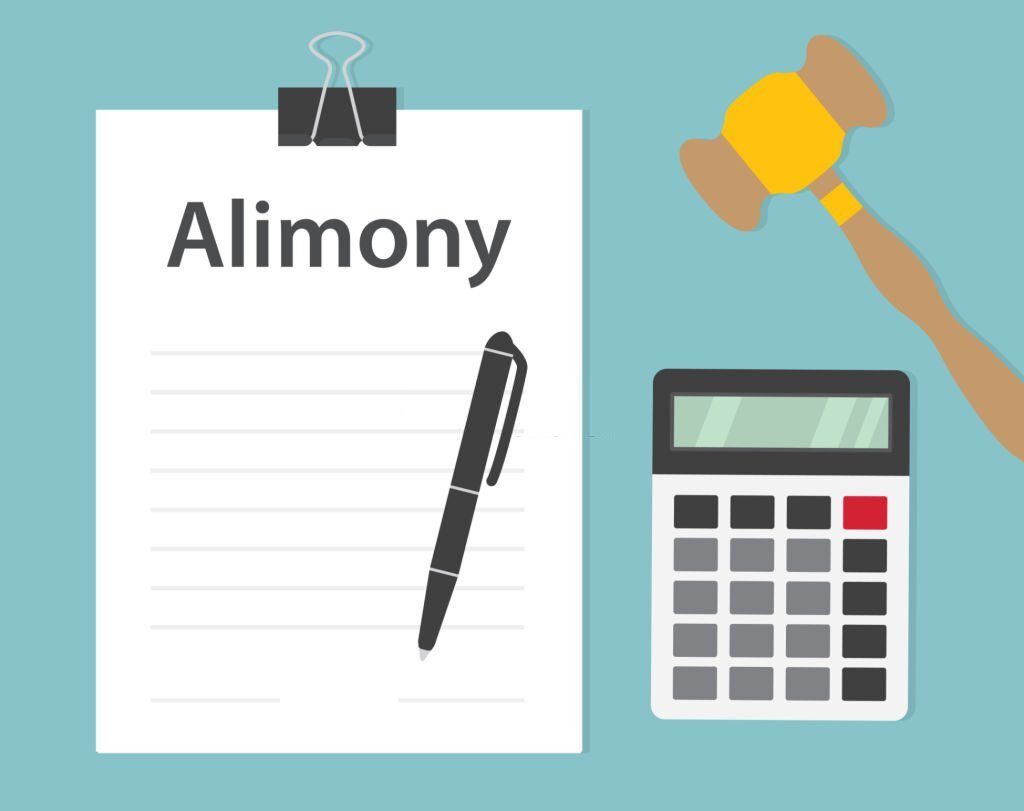
The alimony laws governing spousal support in West Virginia is different from what is obtainable in other states. Read further to grasp the peculiarity of the WV alimony law.
All 50 states in America are alimony states, meaning states that have enacted laws permitting a spouse who cannot work full time or with a lower income to request payments from the other spouse to support themselves after a divorce.
What is Alimony?
Also referred to as “spousal support” or “spousal maintenance” in Mountain State, alimony is the series of payments made by one spouse (the payor spouse) to another (the supported or payee spouse) after the divorce.
Before the alimony payments commence, there has to be a written order or agreement which requires the payor to support the payee with a stipulated amount of money.
This agreement eliminates any disputes in the future about why the payment was made or when it’s not made.
Type of Alimony Laws Practiced in West Virginia

Types of alimony in West Virginia
According to West Virginia Code § 48-8-101 (b), the court can award four types of support: permanent, temporary, rehabilitative, or gross (b).
Temporary Spousal Support in WV
Temporary support, also known as alimony pendente lite, is provided only while the divorce is in progress. Temporary maintenance is intended to help a dependant spouse fulfill financial commitments while transitioning to a single earner throughout the divorce proceedings. Temporary support orders expire once the divorce is finalized by the court.
Permanent Spousal Support in West Virginia
When one spouse is not able to achieve self-sufficient owing to situations beyond their control, permanent spousal support is provided. For instance, if a husband is 55 years old and unable to work due to a medical impairment after 27 years of marriage, and his wife is a fit, successful lawyer, the court is likely to grant the husband permanent spousal maintenance to preserve his financial stability following the divorce.
Rehabilitative Spousal Support in WV
In West Virginia, rehabilitative support is the most typical type of spousal support. The judge supports both spouses to look for work in order to become and stay financially self-sufficient. Courts are aware, nonetheless, that many couples organize their marriages such that one partner can remain at home and raise children while the other pursues a job.
Many spouses lose crucial knowledge or professional skills during their time away from the workforce, making it difficult to obtain work following a divorce. Rehabilitative support is usually granted for a set amount of time to enable the recipient to find work. (W.Va. Code § 48-8-105.)
Spousal Support in Gross in West Virginia
Spousal support in gross is a defined amount of money paid in one lump payment or in installments by the paying spouse. The court may, for instance, order the paying spouse to pay $60,000 to the dependent spouse in one lump sum or over instrumentally over a period of time, like one year.
Who Pays Alimony in West Virginia?
In West Virginia alimony law, the spouse that makes most of the money will share that income with the other spouse. The idea behind who pays for alimony is to considerably level up the living standard of the dependent spouse to what it was while the marriage was on.
Regarding the sex that pays, alimony in Mountain State is gender-neutral, meaning either spouse can request support from the other. As long as the alimony can be provided to the requesting spouse, then it will most likely be granted.
So a husband can receive alimony from a wife in West Virginia if the above conditions are met.
How Long Does Spousal Support Last in WV?

The judge will decide how long alimony payment should last in West Virginia
The duration to pay alimony in West Virginia can differ depending on the individual judge and circumstances. However, you should expect to pay spousal support for a duration of 80-70% of the length of the marriage lasted. So assuming you were married for 10 years, the spousal support duration will most likely be between 6 to 7 years.
As provided by the alimony laws of WV, rehabilitative and permanent support stops if either spouse dies or the supported spouse remarries.
How to Collect Spousal Support Arrears in West Virginia
When it comes to collecting spousal support in West Virginia, you have a few choices if your ex-spouse has failed to make alimony payments as ordered by the court. Debts for spousal support are frequently given priority among debtors under US law.
Factors That Influence Alimony in West Virginia
When deciding on alimony, West Virginia courts might take into account marital wrongdoing such as infidelity. A court can order the supporting spouse to pay from his or her income or wealth, but payments that are “disproportionate to a party’s ability to pay” cannot be ordered.
The average amount payable as spousal support in West Virginia after divorce is determined by various factors. But the major factor you have to understand is “the standard of living of the marriage.” – all these at the judge’s own discretion (W.Va. Code § 48-6-301.)
To determine the final amounts for rehabilitative and permanent support in WV, the courts in WV takes into consideration the income of the spouses, plus other factors like:
- earning capacity of each spouse.
- the ability of the paying spouse to pay, considering assets, the standard of living, earning capacity, as well as earned and unearned income.
- the extent of contribution the supported spouse gave to the other’s educational pursuit or professional license during the marriage
- how long the marriage lasted
- the needs of each spouse
- the assets and debts of each spouse including separate property
- each party’s tax consequences
- the ability of the supported spouse to gain employment without interfering with their children’s care
- each spouse’s health and age
- each party’s balance of hardships
- whether there is a documented history of domestic violence against the children or either party
- will the dependent spouse be self-supporting within a reasonable period
- any criminal conviction of an abusive spouse
- any other factors which the court wishes to consider
Spousal assistance is not available to couples who live together, regardless of once they’re in the divorce proceedings. (W.Va. Code 48-8-101 (c).)
Aside from the criteria given above, the law allows judges to analyze and compare each spouse’s wrongdoing or misconduct during the marriage as a factor that led to the divorce. Even though the judge can examine marital faults like infidelity, the judge must weigh all of the circumstances before making a final decision. (W.Va. Code § 48-8-104.)
How Alimony is Calculated in WV

How Alimony is Calculated in West Virginia
The amount to be paid as spousal support in West Virginia is calculated after considering the above-stated factors. Whichever option is adopted it is reflected in the Alimony Calculator
But to be explicit about how to calculate spousal support in WV, you may need to consult your spousal support attorney.
>>> West Virginia Spousal Support Calculator
Importance of Using a Skilled West Virginia Spousal Support Attorney
If you’re getting a divorce in West Virginia and need to negotiate or re-negotiate spousal support, you’ve definitely got a lot of questions and want to seek competent legal guidance. Though state Supreme Courts have supported lifetime spousal support,
your circumstances may or may not fulfill the requirements. WV courts may judge your case differently based on the merits of you and your previous spouse. There are so many variables to consider.
If you want to get spousal support for the rest of your life or if you want to fight against it in West Virginia, an expert divorce lawyer can help. Depending on the objective and the desire of the adversary attorney to bargain in good faith, you’ll need attorneys that are both empathetic and strong.
For the convenience of our members, we have an up-to-date directory of WV divorce and spousal support attorneys who can help with a variety of issues. For legal advice and
representation on spousal support that is powerful and well-informed.
Click Here to Get our Free Iowa Alimony recommendation.
FAQ About West Virginia Alimony Laws
Here are Frequently Asked Questions about spousal support laws in WV:
Can a Husband get Alimony in WV?
Yes. In West Virginia, alimony payment is gender-neutral, meaning the sex that pays or receives is not the main determinant, but other factors as stated above. For details click here.
Who Qualifies for Alimony in West Virginia?
Just as either spouse can pay or receive, the party that qualifies to receive spousal support is the dependent party while the marriage lasted. This means that in WV, the spouse that had lesser or no income when the marriage was on is also the one qualified to receive alimony. Click here for details
How Long do you have to be Married to get Alimony in WV?
To understand how long alimony lasts in West Virginia, you have to take into consideration how long the marriage lasted.
However, bear in mind that there is no limit to the duration you can pay or receive alimony for marriages that lasted 10-20 years or more. Any marriage that lasted below 20 years will not pay nor receive alimony that exceeds 50% of the duration of the marriage.
Is Alimony Tax Deductible in West Virginia?
Following the passage of the Tax Cuts and Jobs Act, which altered the link between alimony and taxes dramatically in West Virginia and all over the US, alimony payments are no longer tax deductible for the payer and are no longer recognized as income for the recipient spouse as of January 1, 2019.
Is Alimony Mandatory in Mountain State?
Alimony is mandatory in West Virginia as long as one of the spouses earns or owns assets that can be relied upon to support the other spouse after the marriage breaks down.
Can Alimony be increased in West Virginia?
Alimony amount or duration can be increased or decreased due to changes in the financial circumstances of the parties in different ways, including:
- an increase or decrease in the income of the alimony recipient
- if it’s determined that the original alimony awarded is inadequate
- loss to the alimony recipient’s financial assets
- an increase in the justified expenses of the alimony recipient
- when the financial condition of the receiving spouse fails to improve as originally expected
Can you go to Jail for Not Paying Spousal Support in WV?
Technically, you will not be jailed for not paying alimony in West Virginia. While there are varying consequences for not paying alimony, you can still end up in jail as a result. Here is how.
If it’s a West Virginia court-ordered spousal support that you refuse to pay, it means you are in violation of a court order meaning you can be prosecuted for being in contempt of court if contempt proceedings are brought up against you. This could attract a jail term in WV}.
How to Modify Spousal Support in WV?

How to Avoid spousal support in West Virginia
If there is a major change in circumstances well after the original order, any spouse can request the judge to amend or terminate spousal support, unless the decree states otherwise. The loss or gain in a spouse’s income is frequently the result of a change in circumstances. (W.Va. Code § 48-8-105.)
Remarriage and Spousal Support in WV
Permanent spousal assistance ends when a recipient spouse remarries. If the assisted spouse remarries during the first four years of the rehabilitative phase, rehabilitative support does not expire, and spousal support, in general, does not end. (W.Va. Code § 48-6-203.)
Death and Spousal Support in West Virginia
Permanent spousal support ends if either spouse dies unless your accord indicates otherwise. Rehabilitative support ends only when the beneficiary or the giving spouse dies and the judge deems that the departed spouse’s property is unable to continue paying. On the other hand, spousal support in gross does not end with the death of either spouse. (W.Va. Code § 48-6-202.)
How to Avoid or End Spousal Support in WV?
In Mountain State, the spouse paying the alimony can successfully avoid or stop the alimony payment if he/she is able to prove any or all of the following points:
- that the dependent spouse is guilty of infidelity
- the spouse proves that he has no source of income
- the spouse remarries and has to take care of the new spouse however, he/she will continue paying the child support for children if any
- if the spouse is disabled and unable to earn a living
Alimony Laws in all 50 States
A Alabama | Alaska | Arizona | Arkansas
C California | Colorado | Connecticut
D-H Delaware | Florida | Georgia | Hawaii
I Idaho | Illinois | Indiana | Iowa
K-L Kansas | Kentucky | Louisiana
M Maine | Maryland | Massachusetts | Michigan | Minnesota | Mississippi | Missouri | Montana
N Nebraska | Nevada | New Hampshire | New Jersey | New Mexico | New York | North Carolina | North Dakota
O Ohio | Oklahoma | Oregon
P-S Pennsylvania | Rhode Island | South Carolina | South Dakota
T-U Tennessee | Texas | Utah
V-W Vermont | Virginia | Washington | West Virginia | Wisconsin | Wyoming




